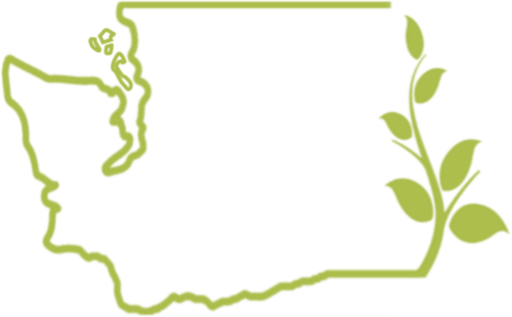
Seeds For Thought
A newsletter of the Master Gardener Foundation of Washington State
August 2023 – Volume 23, Issue 3
From the President
~~ Tana Hasart, MGFWS President
Next >>>
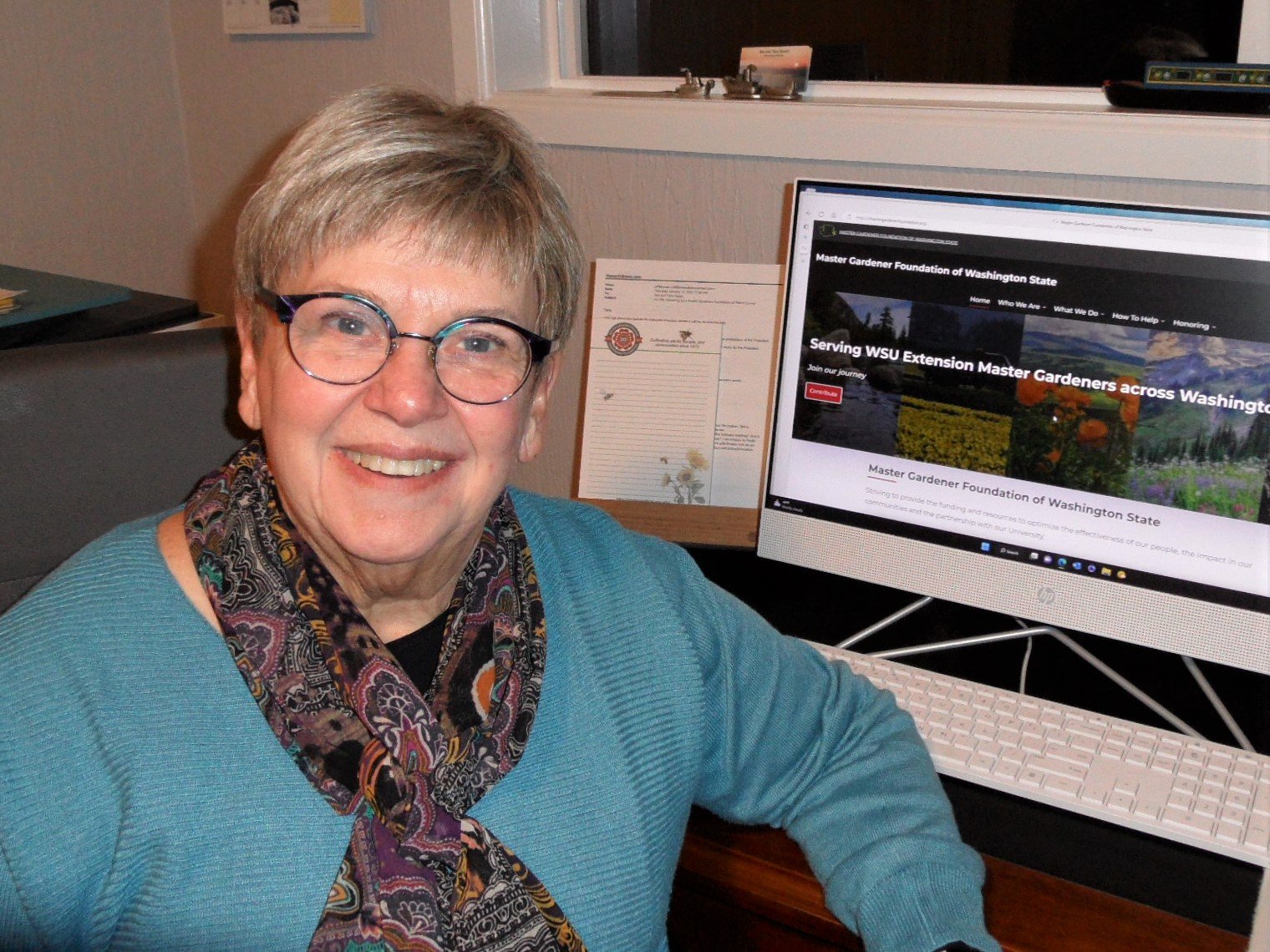
So many conversations this week began with, “What are you harvesting from your garden?” During this busy and rewarding time of year, our hope and patience are rewarded with a bounty of produce, sharing, and good friendships.
Recently we visited the Great Steam Up in Brooks, Oregon, where antique tractors and other farm and working equipment were on display. Watching a more-than-one-hundred-year-old steam engine, fully restored, and pridefully driven by a fifth-generation owner, was truly marvelous. It made me think about the longevity of our own Master Gardener Program.
For 50 years we endured, adapted, and thrived. Staying true to our mission, teaching horticultural best practices in support of our communities, keeps us engaged and passionate. And our future never looked brighter. So, what can we do, right now, to ensure a prosperous next 50 years? Here are three simple steps to take:
- Continue to be active learners and agents for community change. The upcoming Annual Education Conference (AEC) is an excellent opportunity to learn new skills and gain insights that improve our own gardening knowledge and practices. Register now!
- Look for ways to engage in partnerships. The Unified Website Project (UFW) gives a common “face” for Foundation websites across the state. With ten counties now participating in this redesign, our local MGs and the public can better navigate our sites and locate important information. Sign up now if you are not yet a participating county.
- Support the WSU Extension Master Gardener campaign to ensure a full-time faculty member, dedicated to our program, is available to keep our curriculum current, identify research opportunities, and serve as an EMG Program supporter at the decision-making table. Give a little – gain a lot!
Thank you for all you do to make our EMG Program strong and resilient. Your efforts make such a difference.
WSU Extension Master Gardener Endowed Faculty Chair
~~ Jennifer Marquis, Statewide Program Leader
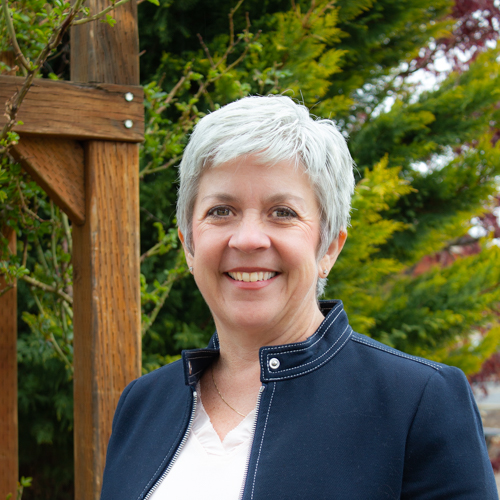
We are raising $1.5 million to hire a horticulture professor fully dedicated to the WSU Extension Master Gardener Program and to the volunteers who give their time and talents. This professor (endowed faculty chair) will teach volunteers, develop cutting-edge, research-based curricula and publications needed by master gardener volunteers, and will engage volunteers in horticultural research projects.
Imagine the impact success of this campaign will have on our WSU Extension Master Gardener Program. A horticulturist fully devoted to our cause in perpetuity will be a game changer. Our program’s status will be elevated within WSU, throughout the state, and across the nation. This Chair will become our advocate, championing our program’s best interests alongside influential chairs and directors of the College of Agricultural, Human, and Natural Resource Sciences. In essence, they will have a seat at the most crucial table in the college.
This horticulture professor will teach volunteers, develop research-based curricula for volunteers to learn from, create fact sheets for volunteers to teach communities with, and engage in cutting-edge research with volunteers around the state.
Currently, the endowment is valued at just over $70K and we have set our sites on reaching the $100K mark by the end of the year. To make this goal more attainable, we have received an extraordinary offer. WSU Extension Skagit County Master Gardener, Deborah A. Smeltzer, and her husband David T. Kingsbury have generously issued a $15K challenge. For every dollar you contribute to this campaign, Deborah and her husband will match it, up to $15K, resulting in a total contribution of $30K.
We kindly ask you to consider making a financial investment in the ongoing success of our program by giving today! Your gift will not only help us inch closer to our fundraising target but it will also be doubled if you contribute before Sept 25, 2023. This is an extraordinary opportunity to maximize the impact of your generosity.
To contribute, simply visit the giving portal at the WSU Foundation. There, you can conveniently make your donation using a credit card. If you prefer to explore alternative giving options, please refer to the How to Donate page on our WSU Master Gardener Program website.
By participating in this campaign, you are empowering our program and shaping the future of horticulture education and research.
WSU Extension MG Endowed Chair Drive Matching Opportunity
To help establish the first-ever, fully dedicated Master Gardener Program endowed faculty chair, Skagit County WSU Extension Master Gardener Deborah A. Smeltzer and her husband, David T. Kingsbury, Ph.D., are providing a $15,000 challenge match between now and September 25, 2023. They will match dollar for dollar up to $15,000 any funds contributed to the campaign from cash donations or pledges during this period. Deborah and David together believe that supporting the Master Gardener Program endowed faculty chair will help ensure the future development of quality curriculum and tools in science-based horticulture and environmental stewardship to support volunteer outreach.
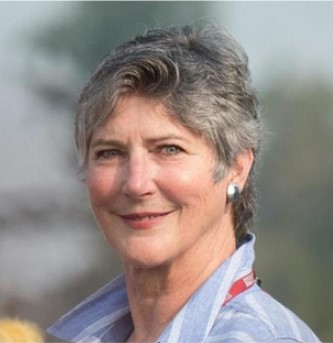
Deborah A. Smeltzer became a master gardener in 2012 and has dedicated her time and energy to supporting the MG Program both in Skagit County and statewide through training master gardener interns and educating home gardeners. She provides leadership in outreach programs, as a member and officer of the Skagit County Master Gardener Foundation board, and as a member of the 50th EMG Anniversary Volunteer Committee. Deborah believes in giving back to her community and applying her expertise and management skills honed during more than 30 years as a corporate executive in the biotechnology industry to strengthen our master gardener program.
David T. Kingsbury, Ph.D., is a Washingtonian whose science and business career spanned the U.S. and Europe. Dedicated to education in many forms, David is a regular supporting volunteer to the Skagit County Master Gardener Program as well as being an avid home gardener.
As an aside, I thought you might like to hear a little more about Deborah and her commitment to our program. She was the 2012 Skagit MG Intern of the Year and 2014 Skagit MG of the Year; just 6 years after joining the program, she earned her Presidential Lifetime Service Award of 4,000 hours in 2018; she was the 2020 Washington MG of the Year; and she’s earned her 500+ Hours per Year Service Awards – every year 2013-2022.
Thank you, Deborah and David, for your generosity. The time and talents you share and the financial contributions you’ve already made, coupled with this matching gift are a true testament to your commitment to research-based horticulture and environmental stewardship education to empower and sustain diverse communities.
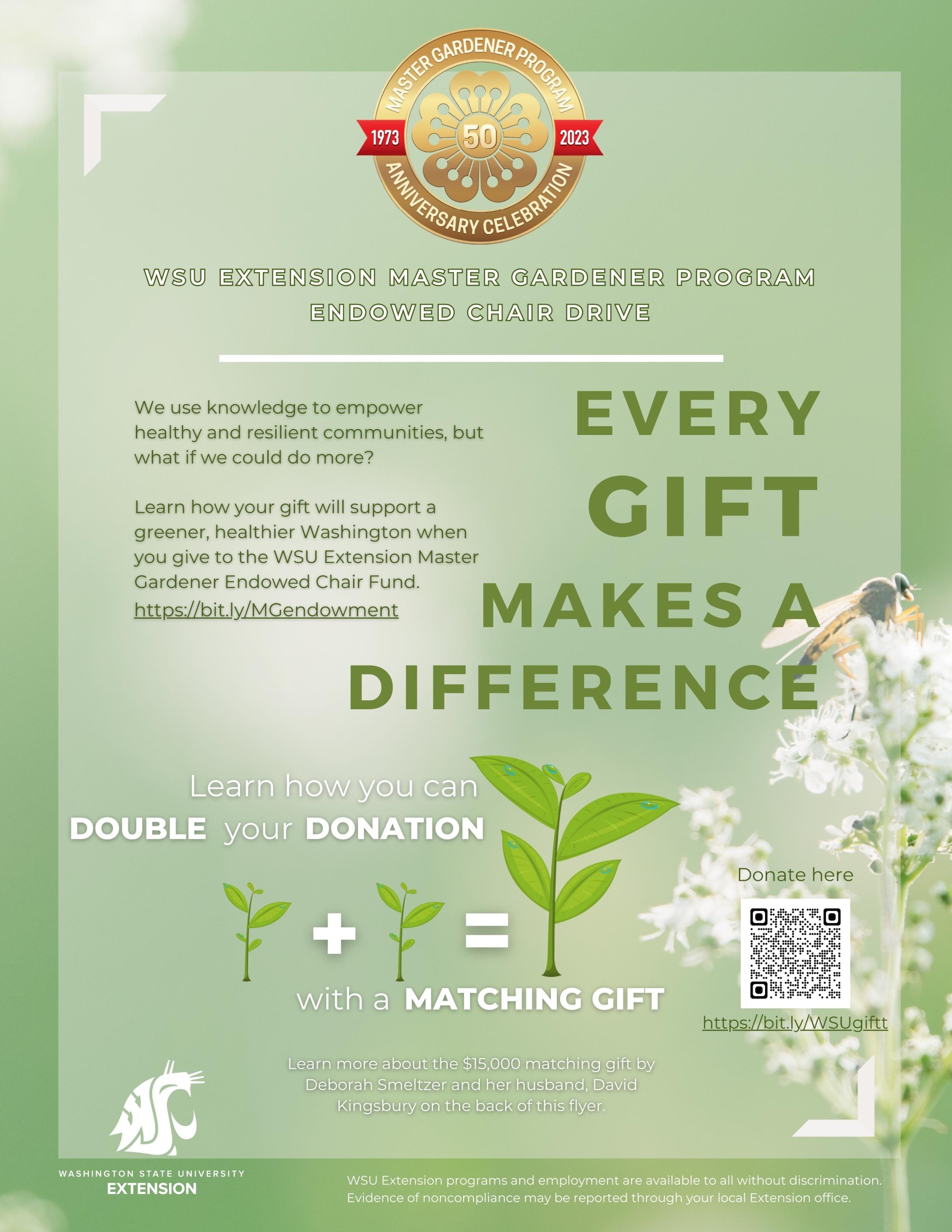
MG Fun at the Rhododendron Parade
~~ Honey Niemann, Jefferson County Master Gardener
Ten members of the Jefferson County Master Gardener Foundation plus WSU Program Coordinator, Bridget Gregg, marched in the Port Townsend Rhododendron Parade on Saturday, May 20. As part of the 50th Anniversary of the Master Gardener Program (MGP), volunteers decided to hold work parties in March/April to sew pollinator costumes to wear in the parade. Nita Wester, the lead organizer, offered two educational presentations on pollinators, focusing on bees and butterflies. Additionally, for the sewing workshops she researched the names of pollinators and their respective insect coloring and had colorful images available for volunteers to create costumes with accurate coloring for each pollinator. Each costume was carefully sewn and painted to resemble a specific bee or butterfly. During the parade, volunteers handed out Phacelia seed packets from WSU-Jefferson County Seed Library with the WSU Logo for adult spectators, and honey sticks to children.

Rhododendron Parade in Port Townsend
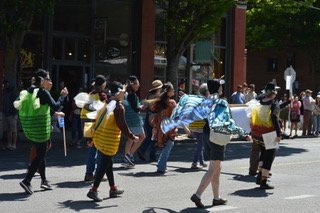
Photo courtesy of Jake Gregg.
2023 WSU Master Gardener Advanced Education Conference
~~ Debbie Benbow, 2023 Conference Chair and Chelan County Master Gardener
As the culminating 50th-anniversary celebration event, this year’s WSU Master Gardener Advanced Education Conference promises to be an affair to remember. It all begins on September 27 with optional tours and ends with an Extension Master Gardener Program birthday party on September 30.
The conference is being held at the beautiful Marriott Tacoma Downtown, a classy venue with spectacular views of the city and Mount Rainer.
Ten top reasons you don’t want to miss this conference!

1. Three to four days of networking with like-minded garden enthusiasts.
2. Meet our dynamic keynote speaker, Michael D. Blackstock, (Gitxsan name: Ama Goodim Gyet) writer and visual artist.
3. Learn from the best. We have over thirty top-notch instructors packed into this 3-day conference.
4. Earn up to ten or more CE credits. Most tours count too!
5. You won’t want to miss the line-up of educational and fun tours. Have you checked them out?
6. The conference is the culminating event celebrating 50 years of the WSU Extension Master Gardener Program. Do you really want to miss this birthday party?
7. Exclusive 50th canvas swag bag. Who doesn’t love a swag bag with free stuff?
8. Shop garden-related items from statewide WSU Master Gardener Foundations and vendors all in one place. Browse exhibitors and Sharing Success displays. Win a raffle or silent auction item.
9. Our next in-person conference won’t happen until 2025.
10. The conference is a great bargain for all the above reasons, plus it includes two breakfasts, lunch on Friday, and a scrumptious banquet dinner Friday night.
Skagit County Annual Plant Fair Hat Contest
~~Diana Wisen, Skagit County Master Gardener
Out of the MANY attractive and creative bits of fancy headgear, two hats stood out.

Aren’t they both just as cute as bugs in their hats?
Growing Lavender: A Year-Round Guide
~~Barbara Faurot, Jefferson County Master Gardener
“Plant lavender for luck.” – Alice Hoffman, Practical Magic
Lavender offers many gifts to the gardener. It offers fragrant foliage and flowers in shades of purple, blue, pink, or white. It produces essential oils and attracts beneficial insects, including honey bees, mason bees, and bumble bees.
The name Lavandula, from the Latin lavare, to wash, comes from its history as a plant used to make perfumes and soaps. In ancient Greece, Rome, and Persia, lavender was used in aromatic teas, crafts, and treatments for various ailments, from headaches to depression to insomnia.
Lavender is native to Mediterranean regions of Europe, Northern Africa, and the Middle East, and it thrives in our maritime climate. As a member of the Lamiaceae or mint family, it shares characteristics with basil, rosemary, hyssop, bee-balm, thyme, sage, and of course, mint. They have aromatic oils, square stems, opposite leaves, and asymmetric flowers with upper and lower petal lobes.

Lavender produces pollen and nectar across a long blooming period, helping to supplement native plants in the garden. According to the non-profit Xerces Society, lavender is considered one of the most important honey plants; the sugar concentration of lavender nectar results in golden honey with a smooth, butter-like texture.
Most lavenders thrive in our sunny, dry summers, and are good candidates for xeriscape gardens. They are largely drought-tolerant once established and will accept fall and winter moisture as long as they have well-drained soil. They are also pest- and deer-resistant.
Lavender can be planted in rows to form a low, flowering evergreen hedge. Some gardeners even use a lavender hedge as part of a deer-resistant strategy, helping deter them from other areas of the garden.
There are about 45 species and more than 450 varieties of lavender worldwide. Casey and Eric Reeter of Wilderbee Farm, a family-run organic farm and meadery in Port Townsend, grow eight different varieties. “We choose certified organic varieties that have at least three different ‘offerings’ — those that produce abundant fresh flowers, dried flowers, and essential oils.”
They’ve found success planting in the early spring to take advantage of spring rains, helping the new plants get established before the summer dry season. New shoots are pruned right away in spring to help direct the plants’ energy toward the root system and encourage new foliage growth.
At Wilderbee Farm, the pruned foliage is included in the steam distillation process to produce essential oils and hydrosols (water produced from distillate that is used to create other lavender products).
Once the new plantings are established, Casey advises that they rarely need supplemental irrigation over the summer, since lavender is sensitive to too much water. Most lavenders prefer dry, sandy, loamy soil with good drainage. There is usually no need to add compost, fertilizer, or other amendments, as rich soil may result in floppy stems and less concentrated aromatic oils.
Flowers are harvested anywhere from April through September or October, depending on the variety. Distinctive botanical characters result in a variety of bloom times, flowers, scents, and oils. “People are surprised that there are so many different choices for ornamental landscaping, aromatherapy, pollinator support, or culinary use,” adds Casey.
Some true lavenders like the narrow-leafed English lavender (Lavandula angustifolia) produce a sweet, floral scent, believed to be calming. Examples are ‘Melissa,’ ‘Sachet,’ and ‘Mitchum.’
Hybrid plants known as Lavendins (Lavandula x intermedia), are larger, with longer, broader leaves. They have up to 7% camphor content, resulting in a eucalyptus scent, believed to be more invigorating and energizing. Examples are ‘Grosso,’ ‘Provence,’ and ‘White Spike.’

Other common species include Spanish lavender (Lavandula stoechas) with a eucalyptus scent, narrow leaves, and pineapple-shaped flowers; Spike lavender (Lavandula latifolia), with high camphor content and spiked flower heads; and French lavender (Lavandula dentata), a small shrub with silvery, serrated leaves and powdery flowers, best in containers since it is sensitive to wet and cold.
After flowering and harvesting is complete, a recommended approach is to prune plants to an inch or two above the woody stems, since new growth won’t occur from old wood. Eric uses a Japanese-style hand sickle for the first rough cut, then finishes by shaping the plants with a hedge trimmer. Leave remaining foliage in place over the winter to help protect young growth buds.
“The tighter the plant, the longer they last,” says Casey. “Once more than half of the plant consists of old woody stems, it’s time to replace it.” With excellent care, plants at Wilderbee Farm have lasted 10 years or more, but 3-7 years is a typical life span.
As winter dormancy approaches, rather than using mulch on bare soil surrounding the lavender plants, Casey and Eric use “volunteer vegetation” as a form of living mulch. In spring, these volunteers are tilled under and any weeds are removed by hand. Then the cycle of spring growth begins again.
Originally published in the Port Townsend Leader on October 12, 2022
Extension Master Gardener 50th Commemorative Magazine Now Available!
It’s here and available to purchase! 50th Magazine | Master Gardener Program | Washington State University (wsu.edu)
The 50th Anniversary Master Gardener keepsake magazine has over fifty full-color pages celebrating 50 years of the Extension Master Gardener Program. Read about how the program started in Washington State in 1973, current points of pride throughout the WSU Master Gardener Program, and a look to the future.
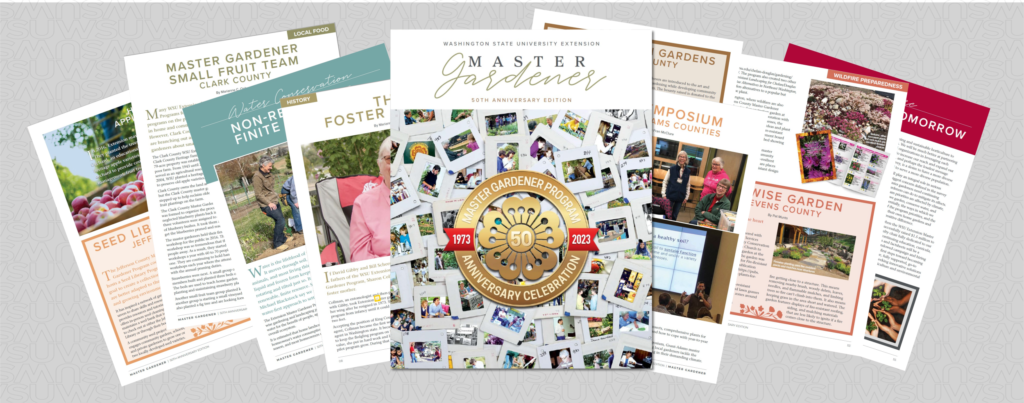
Thurston County Webinar with Marianne Binetti

“Garden Opera” — Dramatic ideas that will turn your garden into a symphony of bloom!
Presented by Marianne Binetti
Join Marianne and learn how to coordinate blooms and repeat melodies of color and texture in your landscape—with tips that will raise the volume on dramatic garden moments including great shrubs and perennials to add to your landscape. Some plants can be exclamation points in your landscape while some can be used to slow down the tempo. Pick up some easy maintenance ideas that can also be show-stoppers. Expect some light-hearted and fun ideas as well – some operas are comedies, and your landscape may need some comic relief.
DATE: Thursday, September 14, 2023
TIME: 6:30 p.m.
WHERE: Virtual Presentation (via Zoom)
COST: $35 per registration
WHAT: Helpful Gardening Tips and Prize Drawings
Registration Information: www.mgftc.org

The Master Gardener Foundation of Thurston County (MGFTC) will host their fourth virtual fundraiser with local gardening expert Marianne Binetti entertaining and informing with creative garden ideas. This online event (via Zoom) begins at 6:30 p.m. and includes several prize drawings.
Binetti is the local area’s national gardening celebrity sharing her passion for gardening with hilarity and witty wordplay. A Grand Prize drawing will be held at the end of the presentation for a future private tour of Marianne Binetti’s garden for up to 10 people!
Funds raised from this event support education and enhancements at three demonstration/learning gardens in Thurston County (Olympia Farmers Market Garden, Closed Loop Park at the county waste management site, Dirt Works behind Yauger Park), a Q/A Clinic and free outreach programs in gardening, composting and recycling-related topics throughout the county.
Seeds for Thought is a quarterly publication of the Master Gardener Foundation of Washington State. Submissions, corrections, and comments can be emailed to the Editor, Erin Landon
Copyright 2023 Master Gardener Foundation of Washington State